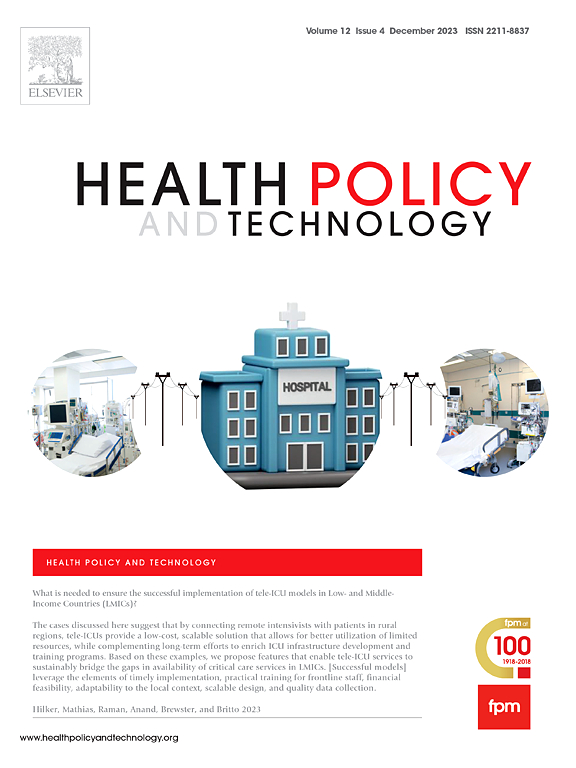S.A.R.A.H. and the decline of trust in health information: a case study
IF 3.7
3区 医学
Q1 HEALTH POLICY & SERVICES
引用次数: 0
Abstract
This case study critically examines S.A.R.A.H. (Smart AI Resource Assistant for Health) as an element of the World Health Organization's (WHO) digital health strategy, focusing on its design and generated content. Launched in April 2024 to provide accessible health information and combat misinformation, S.A.R.A.H. utilizes generative AI to engage users across diverse health topics. Despite its purported empathetic design, concerns arise regarding its operational functionality and empathetic capabilities. By critically analyzing S.A.R.A.H.'s operational limitations and discussing the implications for trust, this paper highlights the tool's potential to erode public trust in WHO as a reliable health information source. It also identifies potential strategies for the development and release of similar tools. The paper underscores the importance of ethical considerations and operational effectiveness in deploying digital health initiatives, aiming to inform future strategies in AI integration within public health. Ultimately, it emphasizes the critical need to uphold trust and credibility in global health institutions.
s.a.a.h.与健康信息信任度下降:一个案例研究
本案例研究将sara(卫生智能人工智能资源助理)作为世界卫生组织(世卫组织)数字卫生战略的一个组成部分进行了严格审查,重点关注其设计和生成的内容。S.A.R.A.H.于2024年4月启动,旨在提供可获取的卫生信息和打击错误信息,利用生成式人工智能吸引不同卫生主题的用户。尽管它有所谓的移情设计,但它的操作功能和移情能力引起了人们的关注。通过批判性地分析莎拉鉴于该工具的操作局限性,并讨论了其对信任的影响,本文强调了该工具有可能削弱公众对世卫组织作为可靠卫生信息来源的信任。它还确定了开发和发布类似工具的潜在策略。该文件强调了在部署数字卫生举措时伦理考虑和业务有效性的重要性,旨在为公共卫生领域人工智能整合的未来战略提供信息。最后,它强调必须维护全球卫生机构的信任和信誉。
本文章由计算机程序翻译,如有差异,请以英文原文为准。
求助全文
约1分钟内获得全文
求助全文
来源期刊

Health Policy and Technology
Medicine-Health Policy
CiteScore
9.20
自引率
3.30%
发文量
78
审稿时长
88 days
期刊介绍:
Health Policy and Technology (HPT), is the official journal of the Fellowship of Postgraduate Medicine (FPM), a cross-disciplinary journal, which focuses on past, present and future health policy and the role of technology in clinical and non-clinical national and international health environments.
HPT provides a further excellent way for the FPM to continue to make important national and international contributions to development of policy and practice within medicine and related disciplines. The aim of HPT is to publish relevant, timely and accessible articles and commentaries to support policy-makers, health professionals, health technology providers, patient groups and academia interested in health policy and technology.
Topics covered by HPT will include:
- Health technology, including drug discovery, diagnostics, medicines, devices, therapeutic delivery and eHealth systems
- Cross-national comparisons on health policy using evidence-based approaches
- National studies on health policy to determine the outcomes of technology-driven initiatives
- Cross-border eHealth including health tourism
- The digital divide in mobility, access and affordability of healthcare
- Health technology assessment (HTA) methods and tools for evaluating the effectiveness of clinical and non-clinical health technologies
- Health and eHealth indicators and benchmarks (measure/metrics) for understanding the adoption and diffusion of health technologies
- Health and eHealth models and frameworks to support policy-makers and other stakeholders in decision-making
- Stakeholder engagement with health technologies (clinical and patient/citizen buy-in)
- Regulation and health economics
 求助内容:
求助内容: 应助结果提醒方式:
应助结果提醒方式:


